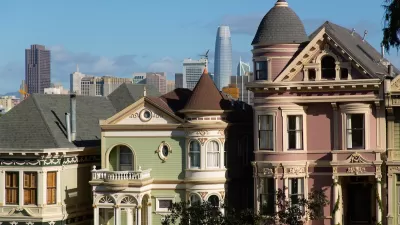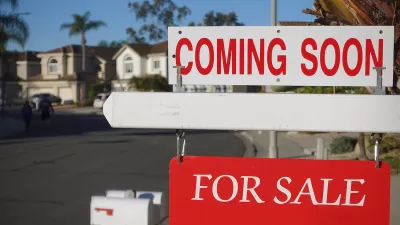Building incrementally over time allows cities and towns to develop more interesting landscapes while incurring less debt. The slow evolution of Seaside, Florida is a prime example of the benefits of 'patient urbanism.'
Building neighborhoods patiently used to be commonplace, says Steve Mouzon, "but it is now illegal all over. Why? Because cities insist on 'seeing the end from the beginning,' meaning that they want the developer to begin by building the final condition of the neighborhood."
Mouzon uses Seaside, the birthplace of the New Urbanism, as an example of a contemporary development built incrementally. "Building this way allowed Town Founders Robert and Daryl Davis to build this world-famous town with essentially no debt after the infrastructure of the first street was paid off. Put another way, had they been expected to build Seaside's climax condition in 1980, it's highly unlikely that Seaside would have ever been built because it would not have been financed."
"This is even more important today, with real estate development money as tight as it has ever been," he argues. "The great places we love the most were usually built without real estate mortgages. Most places weren't more wealthy then than [sic] we are today; they simply built what they could afford at the time and then improved it in small increments over time. Cities and towns really need to learn this lesson again today… it just might make the difference between building and not building, and it will certainly create a better place."
FULL STORY: Patient Urbanism - Build Neighborhoods Without High Debt

Planetizen Federal Action Tracker
A weekly monitor of how Trump’s orders and actions are impacting planners and planning in America.

Maui's Vacation Rental Debate Turns Ugly
Verbal attacks, misinformation campaigns and fistfights plague a high-stakes debate to convert thousands of vacation rentals into long-term housing.

San Francisco Suspends Traffic Calming Amidst Record Deaths
Citing “a challenging fiscal landscape,” the city will cease the program on the heels of 42 traffic deaths, including 24 pedestrians.

Defunct Pittsburgh Power Plant to Become Residential Tower
A decommissioned steam heat plant will be redeveloped into almost 100 affordable housing units.

Trump Prompts Restructuring of Transportation Research Board in “Unprecedented Overreach”
The TRB has eliminated more than half of its committees including those focused on climate, equity, and cities.

Amtrak Rolls Out New Orleans to Alabama “Mardi Gras” Train
The new service will operate morning and evening departures between Mobile and New Orleans.
Urban Design for Planners 1: Software Tools
This six-course series explores essential urban design concepts using open source software and equips planners with the tools they need to participate fully in the urban design process.
Planning for Universal Design
Learn the tools for implementing Universal Design in planning regulations.
Heyer Gruel & Associates PA
JM Goldson LLC
Custer County Colorado
City of Camden Redevelopment Agency
City of Astoria
Transportation Research & Education Center (TREC) at Portland State University
Jefferson Parish Government
Camden Redevelopment Agency
City of Claremont




























